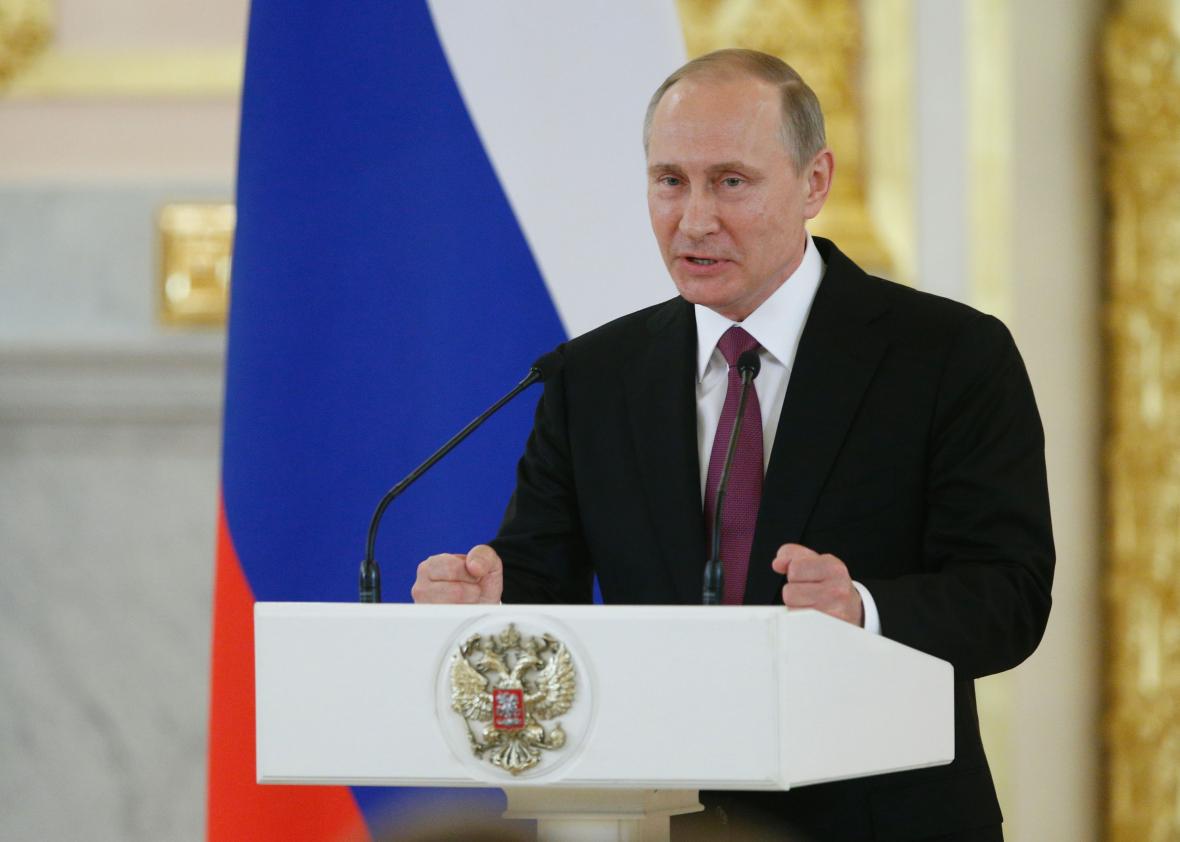Russia admitted for the first time that its officials ran a widespread systemic doping regime used by scores of the nation’s athletes at the highest levels of international competition, the New York Times reported on Tuesday.
More from the Times:
Over several days of interviews here with The New York Times, the Russian officials said they no longer disputed a damning set of facts that detailed a doping with few, if any, historical precedents.
“It was an institutional conspiracy,” Anna Antseliovich, the acting director general of Russia’s program national antidoping agency, said of years’ worth of cheating schemes.
The Times first broke this story in May when Russia’s former anti-doping lab chief, Dr. Grigory Rodchenkov, detailed an elaborate program that involved serving athletes cocktails made up of steroids and booze and a pee-swapping operation that—as Slate’s Josh Levin described it at the time—could have been the script of a spy thriller.
Russian officials had long denied the report and the thorough investigations of Canadian lawyer Richard McLaren, which resulted in more than 100 Russian athletes being barred from this past summer’s Rio Olympics.
The first official recognition of the extent of the doping program comes less than three weeks after the World Anti-Doping Agency issued its own report, which claimed to detail 1,166 pieces of proof after having examined about 120 urine samples. All of the samples examined had been manipulated, including those of 15 medal winners. Additionally, as the Times reported earlier this month, the WADA had found evidence that “subterfuge included using table salt and Nescafé instant-coffee granules to help conceal tainted urine and bypass controls” and “urine provided by two female hockey players at the Sochi Games contained male DNA.”
Ten of the 15 medalists from the 2012 London Olympics who had participated in the program had already been stripped of their medals.
More from that earlier Times report:
Mr. McLaren’s report described the lengths to which various branches of the Russian government went to shield the nation’s antidoping lab from scrutiny. In 2014, when World Anti-Doping Agency inspectors were due to make a surprise visit to the Moscow lab, personnel at the Ministry of Sport tipped the lab off to their trip after learning they had applied for visas.
The evidence also included crucial communications between Russia’s former deputy sports minister Yuri Nagornykh — who was dismissed amid scandal last summer — and Dr. Grigory Rodchenkov, the nation’s former antidoping lab director, who told The Times last spring exactly how he had helped top Russian athletes dope on state orders.
Notably, the Russian admission of guilt and promise to reform was not coming with a guarantee to actually uncover who was behind the “institutional conspiracy” and hold them accountable. The officials continued to deny that the program was “state-sponsored.”
Russian President Vladimir Putin had previously appointed 81-year-old Vitaly Smirnov to reform the nationa’s anti-doping system amid demands that the nation acknowledge the wrongdoing before it is recertified to conduct drug testing and allowed to host another Olympics. Smirnov denied state sponsorship while acknowledging “a lot of mistakes.”
Smirnov was also among the officials speaking to the Times who appeared disinclined from assigning public accountability to individual culprits. He went so far as to excuse his athletes’ behavior, accusing other nations of doping and saying the Russians were only trying to keep up.
“We have to find those reasons why young sportsmen are taking doping, why they agree to be doped,” Smirnov told the Times.
According to the Times, Smirnov then cited a hacking group that had revealed medical records of prominent American athletes, among others, to accuse them of doping without evidence because these athletes had received medical exemptions to take drugs that might result in a positive test for banned substances.
From the Times:
“Have you seen the Fancy Bear records?” Mr. Smirnov said, invoking medical records hacked by a cyberespionage group believed to be associated with G.R.U., the Russian military intelligence agency suspected of hacking computers at the Democratic National Committee. The medical records revealed that hundreds of Western athletes had been given special medical permission to take banned drugs for legitimate therapeutic reasons.
“Russia never had the opportunities that were given to other countries,” Mr. Smirnov said.
“The general feeling in Russia is that we didn’t have a chance,” he added, acknowledging that anabolic steroids like those taken by Russian athletes have never been deemed medically excusable by regulators.
As the Times noted, that Fancy Bear group has been implicated in the hacks of the Democratic National Committee and allegedly works for the Russian government.
